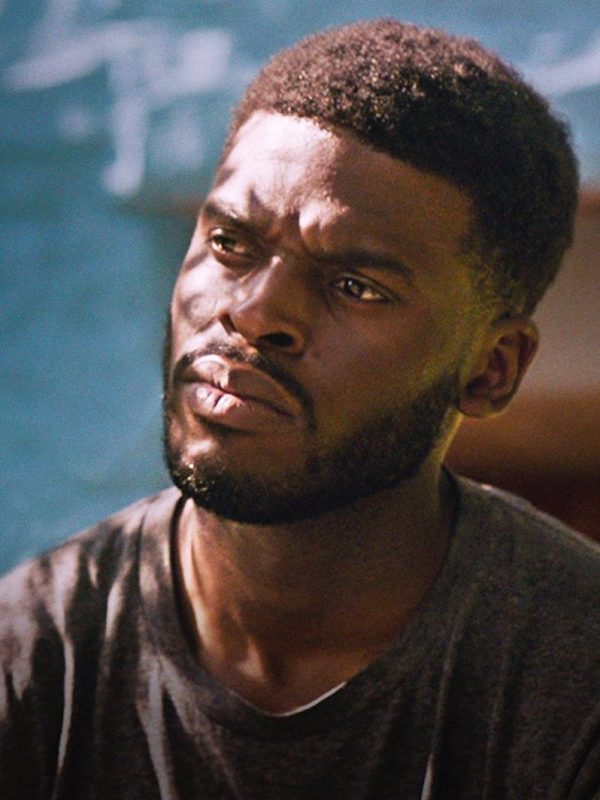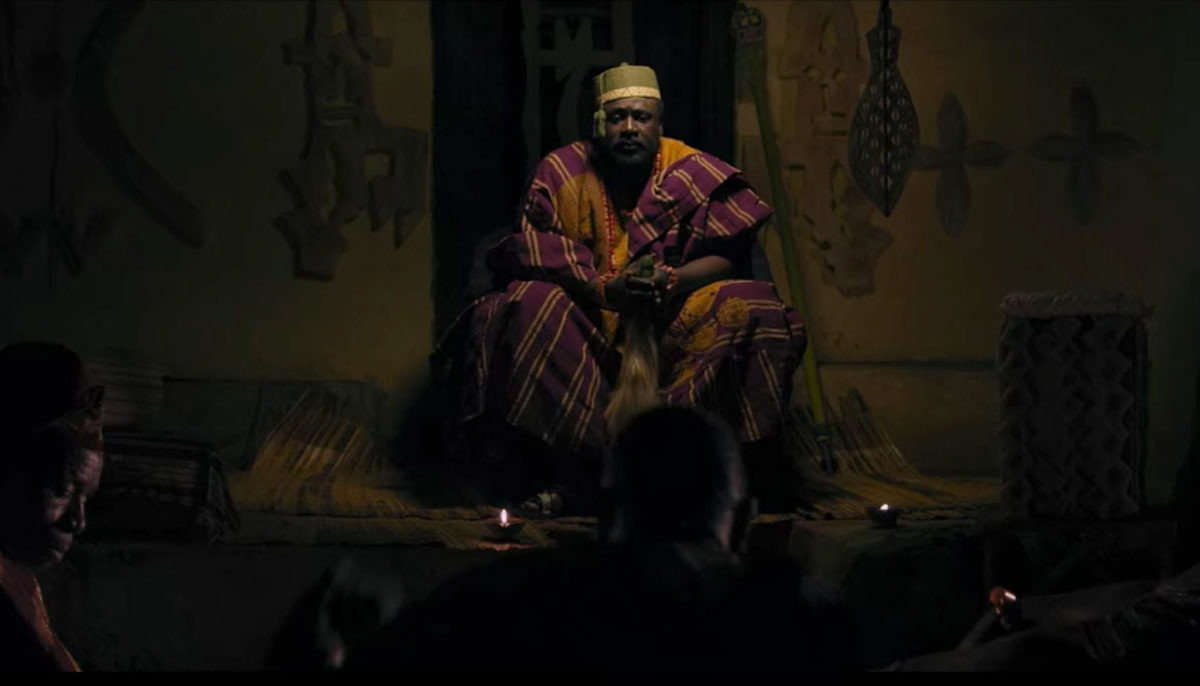In one of my late night Twitter scrolls, seeking a soothe through the biting comedies of Nigerian and Black Twitters, I somehow magically came across Residue, the greatest film I’ve ever seen. Yes. It’s better than the Godfather and Malcolm X and I’ll tell you why in a bit.
The first thing I came across that fateful night was a clip of an interview that ReelBlack did with Haile Gerima, film legend and director of Sankofa–a film which Hollywood execs refused to distribute, and which went on to gross three million dollars independently. In the clip, Gerima stated that he hated film because it had been used against him, and that Latin Americans consider the film to be “the new hydrogen bomb.” I was now wide awake and sitting at full attention. If you know anything about my philosophy on film and media, you know that these words for me were sweeter than the syrupy flesh of a Haitian mango.
“The most important audience member has been deeply changed by this film, which is me.”
Merawi Gerima on ‘Residue’
Introducing… Residue
I dug further, and saw that Haile’s son, Merawi Gerima was also active on this recently posted thread. And then I found out about Residue. My raving reviews of Residue are acutely biased because of not only Haile’s interview, but because of Merawi’s introduction to the film. Knowing the psychology of the filmmaker’s father, knowing that he came from such a warmly radical philosophical lineage, I watched Merawi’s introduction to Residue with the excitement of a traveler finding an oasis in a desert.
I’ve transcribed the introduction here because it is a tome that must be amplified. It must be carved into stone and placed as a monument wherever Black people thirst for Liberation. These words must never be forgotten. This is a poem that must be taught to school children all over the world–Black school children especially. But I highlight one section for you here:
“When I finished this film, I thought I had gotten the rage off my chest
I thought I had found peace
But now, here in the summer of two thousand twenty
I find myself overflowing with a rage that cannot be contained
And so I present to you Residue
Which is not a film
It is a weapon in every sense of the word
It is a blade that we fashioned to the best of our ability
And which we fully intend to use against those who seek to destroy us.”
The Viewing

And the night got better. I saw that Slamdance and Array were hosting a live-tweet watch party with the centerpiece of, you guessed it, Merawi Gerima, the director (and writer and editor) of Residue. In a half hour. Which meant it would begin at 1am my time (BST…Cambridge, UK). So here I am overdue to sleep and I can’t because I’m too excited for this film and the force and meaning behind it and I couldn’t possibly pass up the opportunity to watch it while in dialogue with the filmmaker. And so I didn’t. I watched it in complete awe while fangirling the Gerimas on all fronts.
Overall, I’ll say that Residue was the first time that I saw a Black film–or any film–with such effortless acting that I thought I was watching a documentary. It felt like I was watching my neighbors in Brooklyn just live their lives. I truly had to double check that it was indeed a narrative feature, which means I can never watch any scipted content the same ever again.
Effortless performances. Effortless agency. Black agency. Black characters who were motivated by the force that drove them–love for each other, for their community, for Liberation, for power. Their power was in their innate connection to each other, a connection that came across as effortless on screen.
“Gentrification is one small thing that Black people face. It just falls into a massive congealed experience of oppression that Black people face on a daily basis because of our lack of economic power.”
Merawi Gerima on Gentrification and racial capitalism.
There is a softness to the Black power that Residue exudes. It’s in the poetry of the scene in which Jay visits Dion in prison. In Jay’s conversations with his parents. In their comforting of Mike’s mother. In the prison scene, we’re shown what could’ve been in a more humane society. In Mike’s passing, we’re shown the fabric of Black society, and how fiercely we care for one another.
Gerima depicted Black death without violence, Black pain without feebleness. Instead of making Black lives disposable and Black joy fleeting, he centered our joy, our desires, our intimacy, our strength.
Full Review on Unprecedented
I could go on and on, but instead, I’ll leave you with the below clip of Unprecedented, in which Evan calls Merawi a prodigy. I know that prodigy doesn’t begin to describe this filmmaker who has, in his first film, surpassed the work of the legends who have defined cinema for a century. If you haven’t watched the film yet, if you haven’t watched it at least twice, you’re certainly not making the best decisions with your life.
Watch our detailed review of Residue on Unprecedented below.
Insightful Interview with Merawi in Rome
In addition to his impeccable filmmaking, Merawi appears to be quite the sociologist. Watch his interview at Giornate degli Autori below in which he eloquently discusses the plight of Black people. Some of my favorite quotes:
“Gentrification is a symptom of a much larger problem of our powerlessness in these areas…We don’t have the power to determine our own cities, to maintain our own culture… We don’t ever have enough time in one place to accumulate such history, to have a record of our existence over the course of hundreds of thousands of years…”
“Everything that we experience, economics is at the core, but we also know that (especially in America), economics falls along racial lines. It’s no accident that Black people by and large have nothing in the country, and white people have it all. Economics, capitalism, it’s all racialized.”
“The most important audience member has been deeply changed by this film, which is me… [Residue] has been the best film school, the best life school …”
“Gentrification is one small thing about what Black people face. It just falls into a massive congealed experience of oppression that Black people face on a daily basis because of our lack of economic power.”
Ok, go watch the film ten times and then tell me what you think. If you’ve already seen it, share your thoughts below. And also, join me and 1000 film lovers at NOIR FEST this December. xo





